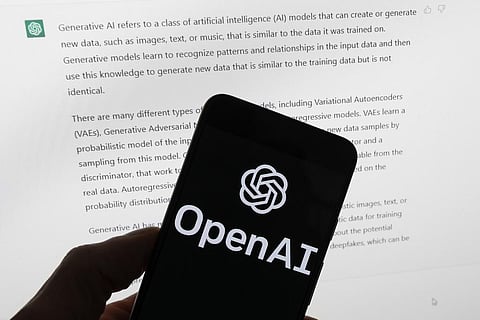

Five Canadian news media companies have filed a lawsuit against OpenAI for breaching copyright and online terms of use by illegally using their news articles to train its software.
News organisations Toronto Star, Metroland Media, Postmedia, The Globe and Mail, The Canadian Press and CBC have all filed the lawsuit in the Ontario Superior Court of Justice on Friday and is seeking for penalty in terms of any profit that the company made off from using the news articles from the organisation. The top Canadian news outlets are demanding punitive damages of 20,000 Canadian dollars (USD 14,300) for each article used to train their AI models.
The lawsuit also seeks a permanent ban on the American artificial intelligence (AI) research organisation from using their articles further.
"Rather than seek to obtain the information legally, OpenAI has elected to brazenly misappropriate the News Media Companies' valuable intellectual property and convert it for its own uses, including commercial uses, without consent or consideration," the 84-page joint filing said.
A New York federal judge dismissed a lawsuit on November 7 against OpenAI that claimed it misused articles from news outlets Raw Story and AlterNet, Reuters reported.
In a statement, the media outlets claimed that OpenAI scrapped large amounts of content to develop its products without any consent or compensating the owners in any way.
OpenAI trains models on 'publicly available data'
In response, a spokesperson for OpenAI highlighted that their models are trained on "publicly available data" and are "grounded in fair use and related international copyright principles that are fair for creators and support innovation."
"We collaborate closely with news publishers, including in the display, attribution, and links to their content in ChatGPT search, and offer them easy ways to opt out should they so desire," a spokesperson further added.
The Canadian news companies' document did not mention Microsoft. This month, billionaire Elon Musk added Microsoft to a lawsuit against OpenAI, claiming the two businesses unlawfully attempted to dominate the generative AI market and displace rivals.